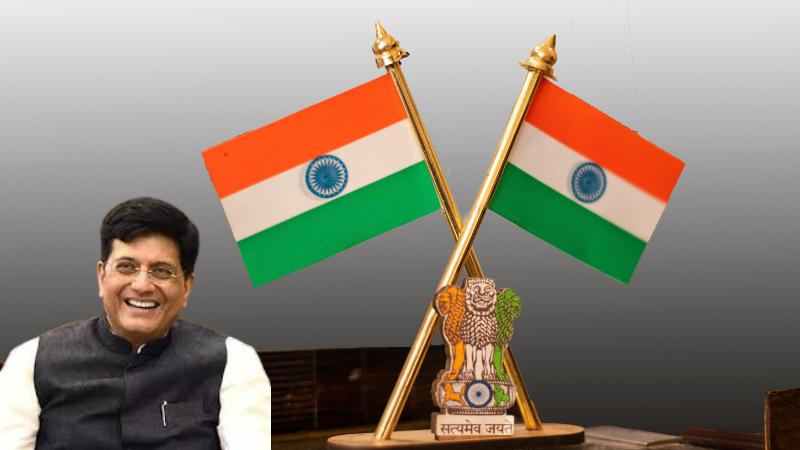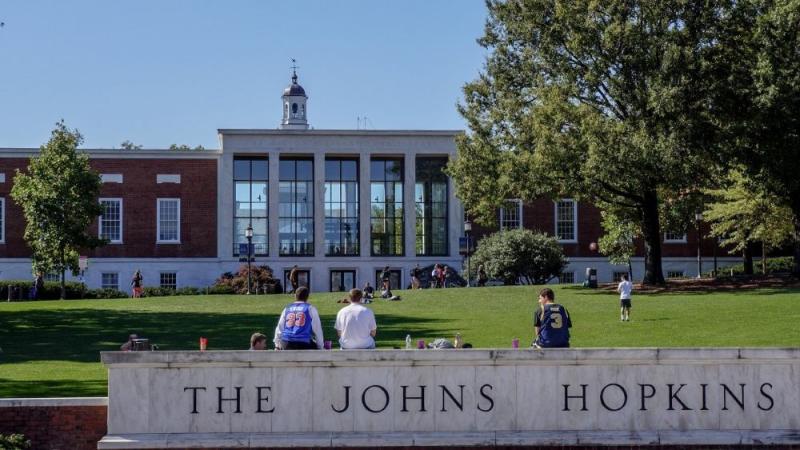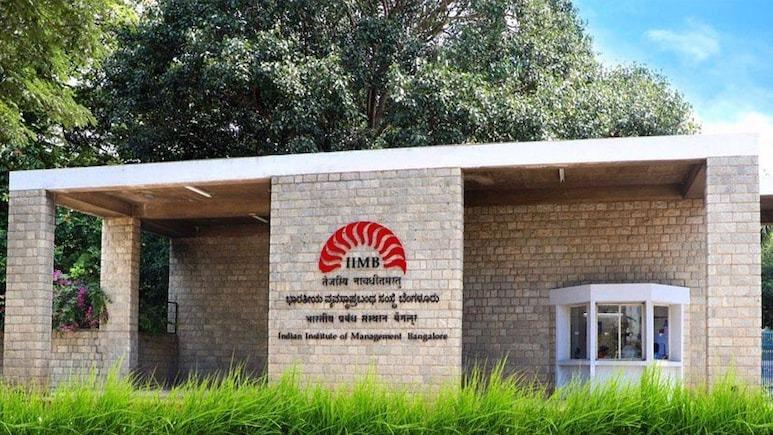
- greensea
- 08 Apr 2025 04:21 AM
- #Finance & Economics #Trump tariffs #India trade #Piyush Goyal #US trade policy #global economy
India's Minister of Commerce and Industry, Piyush Goyal, has expressed confidence that the recent tariff hikes announced by U.S. President Donald Trump could present an opportunity for India to strengthen its position in global trade. In response to the sudden shift in the U.S. trade stance, Goyal stated that India is well-positioned to benefit economically from the new environment created by America's protectionist approach.
Trump recently declared a significant increase in tariffs on a wide range of foreign imports, reigniting global debates on trade wars and economic nationalism. While the move has sparked concern among some nations about disrupted supply chains and rising costs, India appears to be taking a more optimistic view. According to Goyal, the current scenario could lead to greater demand for Indian exports as businesses in the U.S. and elsewhere seek alternative suppliers to replace those affected by higher duties.
Goyal remarked that India has built a resilient and increasingly competitive manufacturing base, making it a viable trading partner for countries impacted by U.S. tariffs. He suggested that Indian producers, particularly in sectors like pharmaceuticals, textiles, machinery, and electronics, may experience a surge in demand if global buyers shift their sourcing strategies away from heavily tariffed nations.
The minister emphasized India's readiness to step into a larger role in the evolving global economic order. He noted that various policy reforms over recent years, including streamlined regulations, improved infrastructure, and expanded incentives for exports, have positioned the country to take advantage of shifting trade dynamics. Goyal added that India’s proactive diplomatic and trade engagements with multiple countries, including those within Europe, Asia, and Africa, also bolster its appeal as a trade partner.
The government is reportedly assessing the broader implications of the U.S. tariff hikes and preparing a strategic response to ensure that Indian exporters can capitalize on the openings being created. While specific details were not shared, sources indicate that ministries are coordinating with key industry stakeholders to explore new markets and align trade support mechanisms accordingly.
India’s leadership views this situation not only as a challenge but as a strategic moment to strengthen its voice in global trade forums. As countries adjust to Trump’s renewed push for tariffs and economic nationalism, New Delhi is aligning its trade posture to reinforce its export capabilities and global supply chain integration.
Goyal also pointed out that India’s growing digital economy and skilled labor force enhance its attractiveness to foreign companies looking to diversify their production bases. Amid global uncertainties, India’s consistent economic reforms and improved ease of doing business could serve as key factors in luring new partnerships.
He acknowledged, however, that careful planning is essential. Any major disruption in global trade flows can have ripple effects, and India will need to stay agile. By maintaining open communication with trading partners and emphasizing multilateral cooperation, the country aims to ensure its long-term stability and growth in the global market.
While Trump’s tariff policies continue to draw mixed reactions globally, India’s measured yet hopeful stance reflects a broader strategy of economic adaptability. Rather than pushing back immediately, the Indian government appears focused on leveraging the global shake-up to its advantage.
India’s ability to pivot in response to geopolitical and trade shifts will be tested in the months ahead. Still, the comments by Piyush Goyal highlight a broader sentiment within Indian economic circles—that within every global disruption lies an opportunity for nations ready to adapt, innovate, and lead.
As global markets react to Trump's latest tariff measures, India’s response may offer a blueprint for emerging economies navigating the complexities of modern trade politics. The world will be watching how India positions itself in the shifting terrain of international commerce.












































